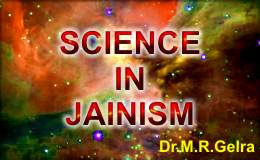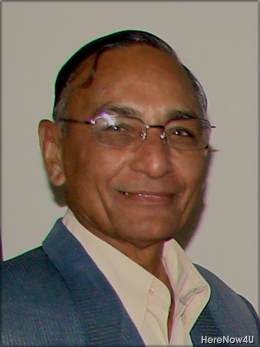
We are living in an age of great paradoxes. If science and technology have opened up new frontiers of unprecedented human progress, they have also brought mankind to the threshold of total anarchy. One may argue here that it is not science or new technological revolution, which has produced anarchy; it is those who misuse or misapply them for their ulterior goals. But the basic question is how can one contain and curb the pernicious impact of the culture of over-consumerism. For consumerism is the result of industrialisation and industrialisation is the result of the application of tools and techniques of science. High profile life styles have changed our humane approach to human problems.
Our mind boggling ostentatious way of life is at the cost of others. Since the fruits of development of modernisation have not yet trickled down to the lowest strata of society, an endemic struggle for existence is bound to create a violent social order. Whatever forms of militancy, terrorism, or violence we see around us are mainly due to economic reasons. Frustration is overpowering our unemployed youth, both skilled and unskilled. They are perpetually haunted by a sense of economic insecurity. Can we bring about a non-violent, the peaceful and stable social order in the face of economic challenges? What are the means and methods to tackle the ever-deepening problem of violence all over the world?
Let us make an attempt to understand the dynamics of non-violence in an emerging new world order. Tentatively, some alternatives will be suggested within the broad frame of non-violence to make this world order relatively non-violent and peaceful.
The doctrine of non-violence was propounded by the oriental teachers several millennia ago. Lord Mahavira, Lord Buddha, and Leo Tolstoy and Gandhi in the modern times taught us to practise the philosophy of non-violence in our day-to-day life. Lord Mahavira's basic postulate of non-violence in thought, deeds and actions is the guiding pillar for the entire mankind irrespective of geographical, religious, and sectarian considerations. According to him, non-violence can be practised by cultivating right knowledge, right vision and right conduct. Once we cultivate these three virtues, there is no room for violence.
In Gandhian non-violence also the emphasis is on improving one's conduct. Gandhiji reiterated that non-violence needs discipline, which can come through education. In his Nayee Talim (New Education), he pleaded for basing it on truth and non-violence. In his speech at a prayer meeting on December 14,1947, Gandhiji exhorted people to liberate mankind from all the ills of the world through imparting correct education. He said: "Education that is not rooted in truth and non-violence is no education in the proper sense of the word".
To Gandhi, learning and higher education have no meaning unless the "satan" inside us is thrown off. Co-existence can be fostered through non-violence at the" intellectual level." The basis of world peace is coexistence through the instrumentality of non-violence. The New World order has, therefore, to be based on co-existence.
If great powers fail to exist with small powers out of sheer arrogance of power, the world can never be safe. Here the concept of security is to be related to the diffusion of economic resources. If concentration of economic power remains in the hands of a few industrialised nations there will also remain a perpetual fear of tension, of violence and bloodshed. For poverty breeds violence. And violence breeds instability in the world.
The alternatives suggested here to overcome violence are:
- Coupling education with non-violence studies;
- Diffusion of economic resources;
- Training of non-violence through active, informed participation of small human groups at the grassroots’ level;
- Fostering international understanding through cross-cultural interaction by holding periodical seminars and conferences.
Each one of these alternatives has its own relevance. One need not take them in isolation from the other. Their effectiveness depends on how much true education one has gained beginning from childhood. One need not be panicky that education is a long process, and it may be a tortuous path to inculcate the spirit of non-violence. Let us start from now. If education in non-violence or training in non-violence may not be relevant for a middle-aged person or for an old man since he has cultivated fixed ideas over the years, let our education be for the kids. They will grow over years and would be under constant interaction with right-minded people. They will turn out to be men or women free from biased knowledge, narrow thinking habits and inhuman behavioural patterns.
 Dr. Mahavir Raj Gelra
Dr. Mahavir Raj Gelra

